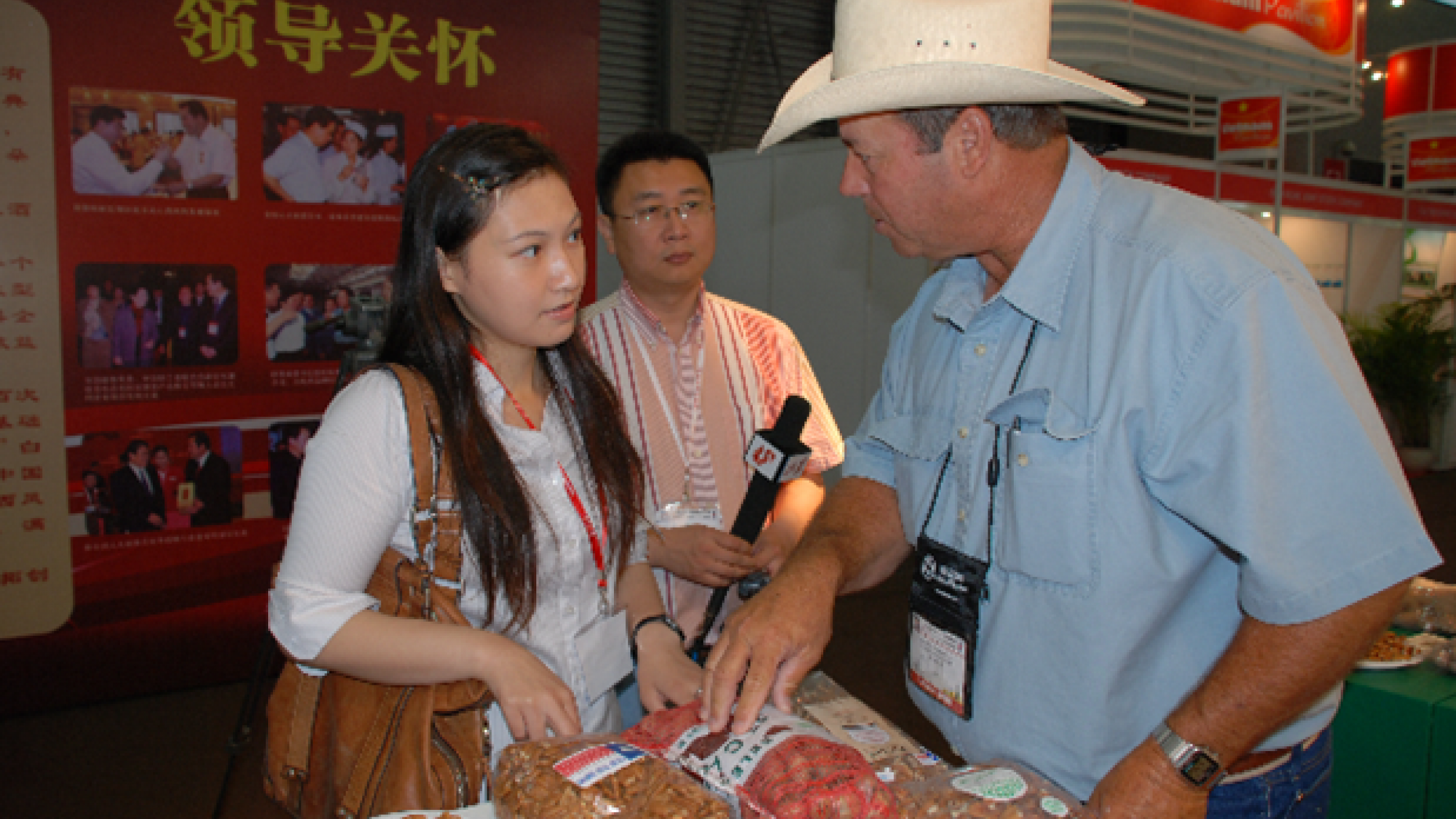Foreign Markets are a Tough Nut to Crack, But Pecan Industry Finds Success

In 2009 when Tim Montz first traveled to Shanghai representing the Texan pecan industry, he had to explain what pecans were. Two years later, promoting their pecans to China and other countries has become “business as usual” for father-and-son team Tim and Jake Montz of the Montz Pecan Company.
“Just a couple years ago exporting pecans to China was something we heard about but thought it was something of a niche for larger growers and wouldn't affect us,” said Jake Montz. “Boy were we wrong. Now China is driving the market. We have exported pecans to China for the last two years and plan on continuing in the future.”
The overseas market for U.S. pecans is growing and many pecan growers, like the Montz family, are reaping the benefits. In 2010, the United States exported more than 47,000 metric tons of pecans. U.S. pecan exports reached more than 50,000 metric tons in just the first 11 months of 2011. Hong Kong, Mexico and the European Union are the three largest export markets, representing more than 70 percent of the overall world market for U.S. pecans.
A large part of this growth is the result of marketing programs supported by USDA’s Foreign Agricultural Service. The Montz Pecan Company is a member of the newly formed National Pecan Growers Council (NPGC), a new participant in USDA’s Market Access Program (MAP). Several pecan industry groups that previously participated in MAP but recently joined forces to form this new organization, which represents the 14 pecan growing states.
NPGC first promoted U.S. pecans internationally in 2011, participating in a number of food shows around the world. International trade shows are one-stop shops that provide visibility to U.S. companies and allow exhibitors to further analyze the local market. Through events, foreign buyers have become more knowledgeable about U.S. pecans and are reaching out to growers directly to purchase straight from the farm. They are also working to contract entire crops for next year, a practice previously unheard of in the pecan industry.
“The money being invested by FAS through the Market Access Program is paying huge dividends for growers large and small across the board,” said Montz. “Whether a grower exports or not, his price per pound is going to be affected by our new, growing export market. This price stability allows us to make big plans for the future. Just this week we finished planting a new orchard and we plan to continue to expand with more orchards, equipment and additional employees. All of this would have been impossible without the help of FAS. ”
